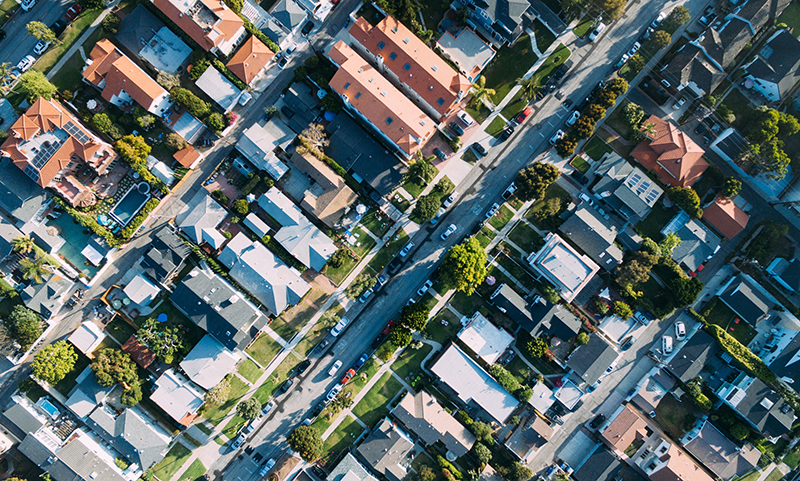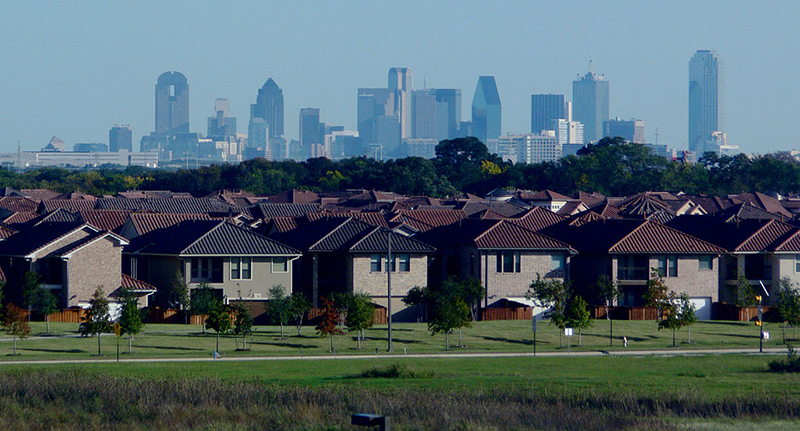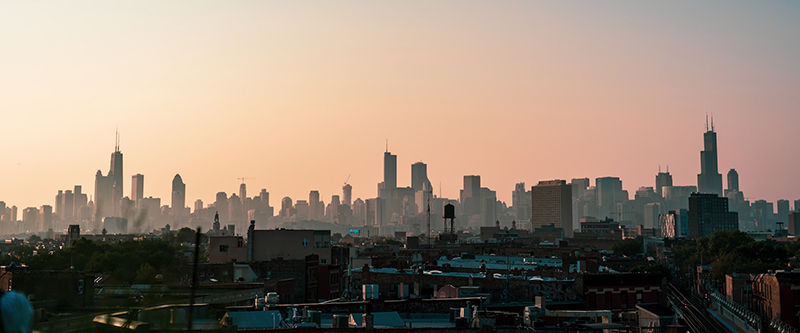
It’s August, and it is already month five of COVID-19 shutdowns, precautions, and economic uncertainties. Even with all of this upheaval, the real estate market in Chicago has been steady. At the start of the quarantine, many financial and real estate experts were unsure of the impact it would have on the housing market. And while the US economy has suffered, the health of the housing market in Chicago is on solid footing, and gradually rising. Here are a few reasons that experts believe have contributed to the market’s gradual rise and some future predictions.
Home buying has not stopped
People are still moving and buying real estate, even in this uncertain economy.
In fact, according to a recent Pew research study, about 20% of Americans have relocated due to the pandemic. The reasons for relocation span a variety of reasons including job loss, moving in with family members, and just needing more space.
One reason that people are buying now is due largely to the historically low-interest rates, holding in the 3% range. That coupled with the fact that many are spending so much time at home due to COVID safety precautions, and are no longer happy with their living situation (such as not enough office space to work from home, not enough room for children to play and learn remotely during the school year for the first time, or just not enough room). There are still those with some concerns about the future of their employment, however, but it hasn’t yet drained the pool of buyers.

Conversely, there are buyers who want smaller, more affordable homes. According to chicagoagentmagazine.com the market for smaller homes, measuring under 1,000 square feet, has increased from 8% to 39% since the onset of the pandemic. Job losses, pay cuts, and the uncertainty of the economy’s future have led many to cut back on their home expenses and downsize.
Now is a good time to list property because there is still a limited inventory of available homes since a lot of would-be sellers are hanging on to their listings due to the COVID-19 restrictions and health concerns. Even if more sellers do decide to list their properties in the coming months, there should still be a demand for the supply of houses—as long as there isn’t a sudden increase in new construction.
Though real estate is an essential business and has not been shut down since the onset of the pandemic, realtors have taken a variety of precautions since phase one of quarantine including video and virtual home showings and signing closing documents via power of attorney instead of in person. Now that the Chicagoland area is in later phases of reopening, realtors are able to hold open houses and have more in-person home showings along with the video and virtual sessions they offered previously. Everyone must still take appropriate safety measures, however, such as social distancing whenever possible, wearing face masks, frequent cleaning, and not allowing groups of more than 50 people to gather at any time.
Moving from city to suburbs
 Photo: Andreas Praefcke
Photo: Andreas Praefcke
City life has suddenly lost its appeal for a lot of residents. After the extra measures are lifted, many aspects of daily life will have changed. Urban dwellers may no longer wish to live in such dense areas, take public transit, or walk down crowded streets even after the coronavirus threat levels subside. Working from home, in many cases, has become the new normal for employers and employees. Some have discovered that it isn’t necessary for them to go into an office at all and will not return to a traditional office setting in the future. A number of companies have also switched to a more remote-based (if not 100% remote) model due to high rents for space that is going unused.
Moving within the city
Although some Chicagoans are exiting the city, many are staying but rethinking how they are living. Perhaps they want to move from a densely populated high rise into a low-rise condo or townhouse, or even purchase a single-family home in a different neighborhood. While the draw of many amenities in high rises such as gyms, pools, and views may have swayed them into their initial purchase, these shared spaces may now be far less appealing.

Buyers are also searching for properties with private outdoor spaces. With more time spent at home, getting outside has become a necessity. Along with the change of scenery, the outdoors can also be a safer place to have a socially distanced gathering with friends and family. Even a small balcony or patio can be a huge selling point to someone who lives in a home without any outdoor space.
A lot of people who relocated during this time have moved in with family—either to save money, take care of aging or immuno-compromised relatives, or simply to have some human interaction (among many other reasons). Some are even choosing to make the situation permanent and are looking for larger homes to accommodate more family members or finding residences with in-law living set-ups.
Long term effects
Fortunately, the experts believe that the market will not drastically decline any time soon. Although, some posit, that an unintended consequence of such low mortgage interest rates is that future real estate sales may decline as a lot of homeowners may feel locked into their mortgage rates. Or, homeowners may choose to refinance their home now and hold onto it longer than they may have otherwise. If the interest rates once again rise, purchasing a home, even in a similar price range would increase monthly expenses quite a bit. This could create a demand for homes that exceeds the supply. No one knows for sure what the future will hold, but many are optimistic.